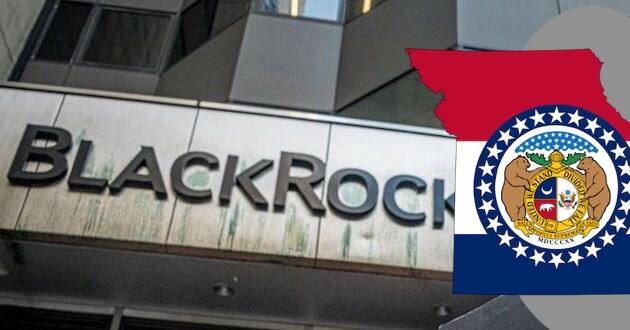Investors must admit to ESG considerations under new Missouri rule

Financial advisers and institutions in Missouri must have clients sign disclosure forms when an investment option could rely on environment, social and governance scores or prioritize elements that may not yield maximum profits. The new rule went into effect at the end of July and is intended to protect investors from “woke” policies that harm returns. It comes as the S&P has dropped ESG as a consideration.
Neighboring Kansas also has a new law reigning in ESG decisions. The rule, which Democrat Gov. Laura Kelly allowed to go into law without her signature, prevents government officials from using ESG factors in investing public funds or deciding who receives government contracts.
ESG, which stands for environmental, social and governance, is considered by many to be an investment scam foisted upon corporations by the left. In the last three years, it forced companies to support political goals including pride celebrations, the closure of effective energy production such as oil and clean coal, and support for self-described Marxist organizations such as the founders of Black Lives Matter.
#ElonMusk called the environmental, social, and governance #ESG scoring “a scam” in a series of Tweets, citing S&P Global’s inclusion of ExxonMobil Corporation in its ESG Index while his own electric car company, #Tesla Motors, was removed.
Full story: https://t.co/mQjfEixlzZ pic.twitter.com/CNcq8ZkLyx
— NTD News (@NTDNews) May 20, 2022
Republican Secretary of State Jay Ashcroft enacted the rule under his authority to regulate securities, according to “Missouri Independent.” He said the rule is directed at investors who are “going to make a discretionary trade recommendation, and that recommendation is wholly or in part based on something other than getting the maximum financial return. They need to disclose that and get approval.”
Ashcroft said that while Missouri is taking an innovative approach to regulating ESG practices, he believes the state could set the precedent for other secretaries of state who control securities with similar control over investment rules. He speculated that Wyoming, Mississippi and Georgia might follow Missouri’s lead. The rule gives people a choice of pursuing investments for maximum profit or potentially compromising some of that profit to invest in companies that align with their values, he said.
“We didn’t want to preclude people from being able to invest in anything, because once again, it’s their money,” Ashcroft said.
The rule, 15 CSR 30-51.170, requires written consent for ESG-related transactions either at the beginning of a person’s relationship with their financial advisor, when a broker is advising on a sale of a security or commodity or when a broker is selecting a third party to manage the investments in someone’s account.
The Missouri Chamber of Commerce criticized the rule.
“We’ve had pretty extensive conversations with the secretary of state’s office,” said Phillip Arnzen, head of governmental affairs for the chamber. “And they did a slight revision, but it did not address the concerns. This rule, it’s so vague that you could look at it and almost every single transaction, you could say, theoretically, you’re going to need this consent form.”
While its public face is primarily “environental” and “green energy”, Elon Musk has stated “ESG is a scam. It has been weaponized by phony social justice warriors.”
Ashcroft rejected criticism that the rule isn’t clear. “Are they against telling people and disclosing how their money is going to be invested?” he said.
Missouri last year, under then-state Treasurer Scott Fitzpatrick, pulled $500 million of the state’s pension funds out of controversial BlackRock funds.
In a press release explaining the decision, Fitzpatrick, who is now the state auditor, revealed that BlackRock betrayed shareholders after those with voting power in the company elected members of a small climate activism hedge fund to Exxon’s board. He called the action shareholder activism. Fitzpatrick said the move caused Exxon to backtrack on planned expansion of oil and gas production, causing investor harm.
Other attorneys general are looking at the new Missouri rule to be a model for similar protections in their states.
–Alan Goforth | Metro Voice








